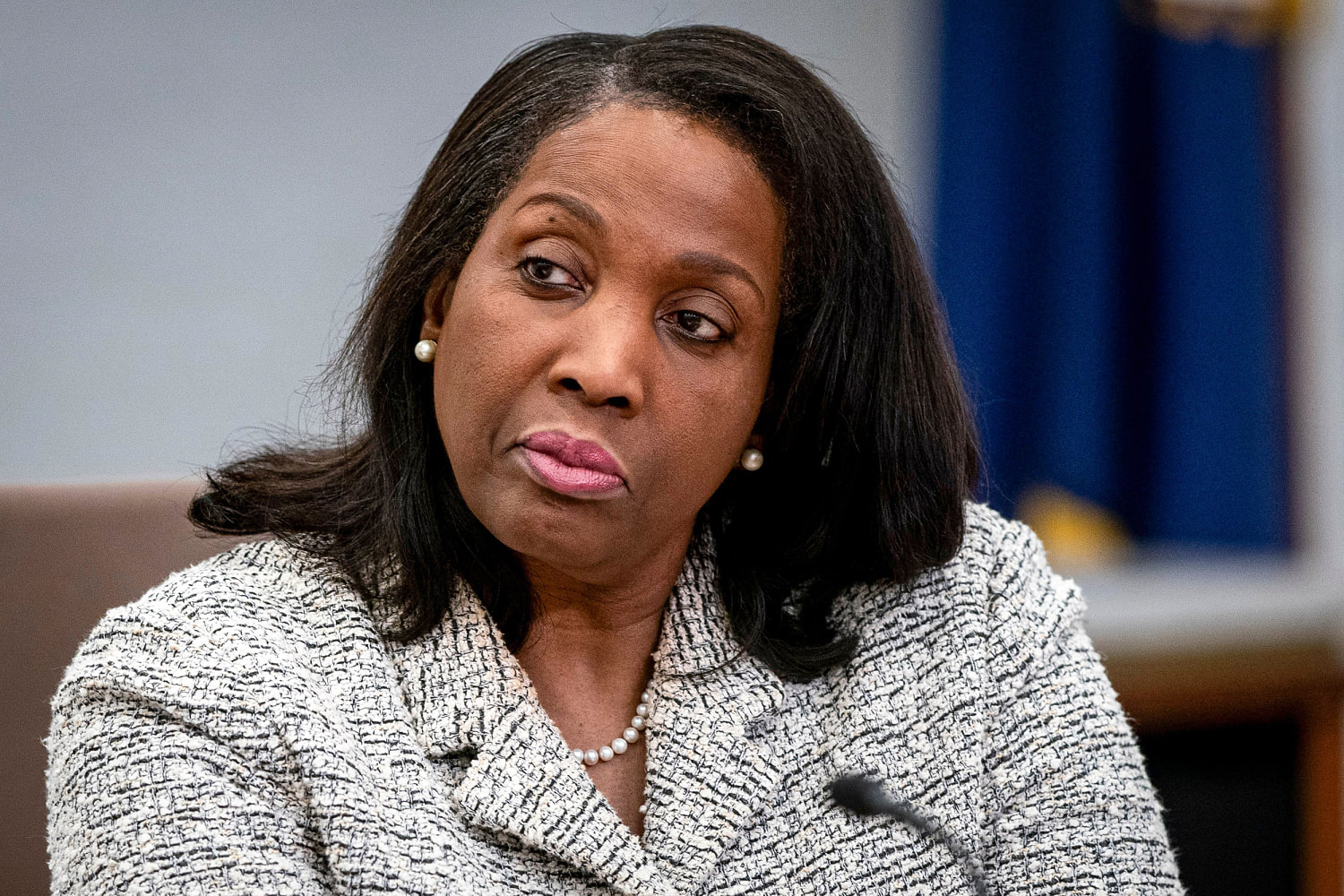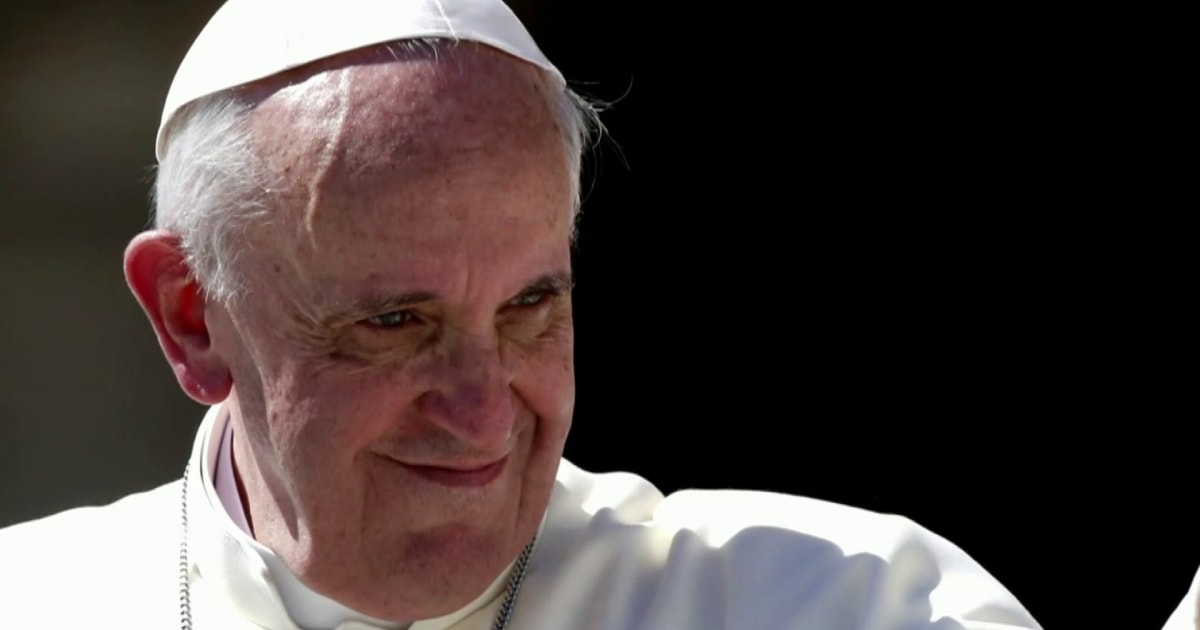
At Spelman College in Atlanta, Lisa Cook is the “personification of excellence,” said Darlene Smith-Garner, a 2023 graduate of the historically Black women’s college, where Cook also studied.
“We see her as one of our great alumnae, a model,” Smith-Garner said. “To get where she is, she had to overcome a lot and fight. And that’s what she will do now, as a Spelman woman. And not just a fight not for her job, but a fight for what’s right.”
Cook’s latest fight is with Donald Trump to keep her position on the Board of Governors at the Federal Reserve.
Trump sent Cook a letter Monday saying he was firing her after Federal Housing Finance Agency Director Bill Pulte accused her of falsifying bank records to secure favorable mortgage terms before she was elevated to her position.
Cook, 61, said in a statement that Trump “purported to fire me ‘for cause’ when no cause exists under the law, and he has no authority to do so. I will not resign. I will continue to carry out my duties to help the American economy as I have been doing since 2022.”
Cook’s lawyer, Abbe Lowell, said she plans to file a lawsuit challenging the basis of her removal. A White House spokesman said in a statement that Trump “exercised his lawful authority to remove” her.
Fighting has been the hallmark of Cook’s academic and professional career, highlighted by her becoming the first Black woman to serve as a governor of the Federal Reserve. She was confirmed after Vice President Kamala Harris issued a tiebreaking Senate vote in 2022. Federal Reserve governors are expected to fulfill 14-year terms.
Cook’s background informed her scholarship
Cook is originally from Milledgeville, Georgia, a quaint town about 98 miles southeast of Atlanta that served as the state capital from 1804 to 1868. After the Civil War, the capital moved to Atlanta, which led to the economic downfall of Cook’s town. Generations later, she and her sister were among the first Black students to integrate their local schools; in 2020 Cook told NPR that she still has a “scar where hair won’t grow in my eyebrow and a scar on my leg from having been beaten during that period, during the period of desegregation.”
Cook has extensively studied the ways racial discrimination, including segregation and Jim Crow laws, affected the American economy at large. In a 2020 New York Times article, she wrote that discrimination “inflicts a staggering cost on the entire economy.” In an academic paper, she concludes that “domestic terrorism” and violence against Black people accounted for more than 1,100 missing patents, which implies “that ethnic and political conflict may affect the level, direction, and quality of invention and economic growth over time.”
Her work has broadened beyond the United States, with roles advising the Nigerian and Rwandan governments on banking reform and economic development, according to The Associated Press.
After having studied at Spelman, Oxford University and the University of California, Berkeley, where she earned a Ph.D. in economics, Cook was an adjunct professor at Harvard University. She taught economics and economic policy for years at Michigan State University. Under President Barack Obama, Cook served on the White House Council of Economic Advisers.
As the first and only Black woman on the Federal Reserve’s Board of Governors, Cook is also part of a very small cohort of Black women with Ph.D.s in economics. Only 1.8% of all economic degrees went to Black women in 2024, and while the figure has risen in the last decade, 6.7% of Ph.D.s were awarded to Black women, according to an annual report by the American Economic Association.
She has faced Republican resistance in the past
Despite Cook’s credentials, Senate Republicans pushed back against her work during her confirmation hearing, including JD Vance, then a Republican senator from Ohio, who said at the time that a focus on diversity “may distract from our ability to focus on far, far more important things.” Peter Navarro, a longtime economic adviser for Trump, said in 2022 that Cook was “more qualified to coach an NFL team” than join the Fed.
After the narrow vote, then-Sen. Sherrod Brown, D-Ohio, remarked that no Republicans voted to confirm her.
“It’s been 109 years and seven people on the Federal Reserve at one time, and not one African American woman ever,” he told HuffPost after her confirmation. “They should be ashamed.”
How has Cook fit in at the Fed?
At the Federal Reserve, Cook served on the Consumer and Community Affairs Committee, which implements federal laws “intended to protect and inform consumers in credit and other financial service transactions.” She also serves on the Financial Stability Committee, as well as the Subcommittee on Smaller Regional and Community Banking.
New York Fed President John Williams told CNBC on Wednesday that Cook has “always brought integrity and a commitment to the Federal Reserve’s mission. She’s a very esteemed, highly respected economist.”
Cook is considered a more dovish voter on the rate-setting Federal Open Market Committee and has voted in line with Fed Chair Jerome Powell in keeping interest rates on hold. She holds a permanent vote on such policies until her 14-year term ends. If she is removed, it would open the path for Trump nominees to hold a majority on the Fed’s board, which the Economic Policy Institute warned against in a statement Tuesday.
Cook’s future and the Fed’s independence are under scrutiny
“Presidential capture of the Fed would signal to decision-makers throughout the economy that interest rates will no longer be set on the basis of sound data or economic conditions—but instead on the whims of the president,” the group said.
Members of the Fed issued a statement Monday, without mentioning Trump, that emphasized that the Federal Reserve Act says governors can be removed by the president only “for cause.”
Columbia University law professor Lev Menand told The New York Times that examples of “cause” would include acts of misconduct carried out in connection with her position at the Fed, such as accepting a bribe or another form of corruption. Cook has not been charged with a crime, and the bank documents in question stem from before her term began, according to the Times.
Three years into her term, Cook’s future is again up for debate. She is one of several high-profile officials to become targets of the Trump administration. Pulte has made similar claims of financial fraud about New York Attorney General Letitia James and Sen. Adam Schiff, D-Calif., both of whom investigated Trump during the Biden administration.
Trump said Monday that he was rightfully calling for Cook’s firing because “she seems to have had an infraction, and she can’t have an infraction, especially that infraction, because she’s in charge of, if you think about it, mortgages. And we need people that are 100% aboveboard, and it doesn’t seem like she was.”
House Minority Leader Hakeem Jeffries, D-N.Y., said in a statement that the attempt to remove Cook was being done “without a shred of credible evidence.”
The Congressional Black Caucus described the campaign against Cook as an “unlawful attack on the integrity and independence of the Federal Reserve.”
On Monday, Sen. Elizabeth Warren of Massachusetts, the top Democrat on the Banking Committee, who backed Cook during the nomination process, said the move was an “authoritarian power grab.”
Cheryl W. Turner, international president of Delta Sigma Theta, Cook’s historically Black sorority, condemned the attempt to oust her, warning it would create “grave implications for families and communities” while undermining the Fed’s independence.
“As a women’s organization — and a champion of justice, scholarship, service, and economic development for 112 years — Delta Sigma Theta unequivocally opposes any measures that silence Black women, whose voices and leadership remain vital to the progress of our nation,” she told NBC News.
As for Cook herself, in a statement last week, she said she intends to take questions about her financial history seriously but added that she had “no intention of being bullied to step down from my position because of some questions raised in a tweet.”








